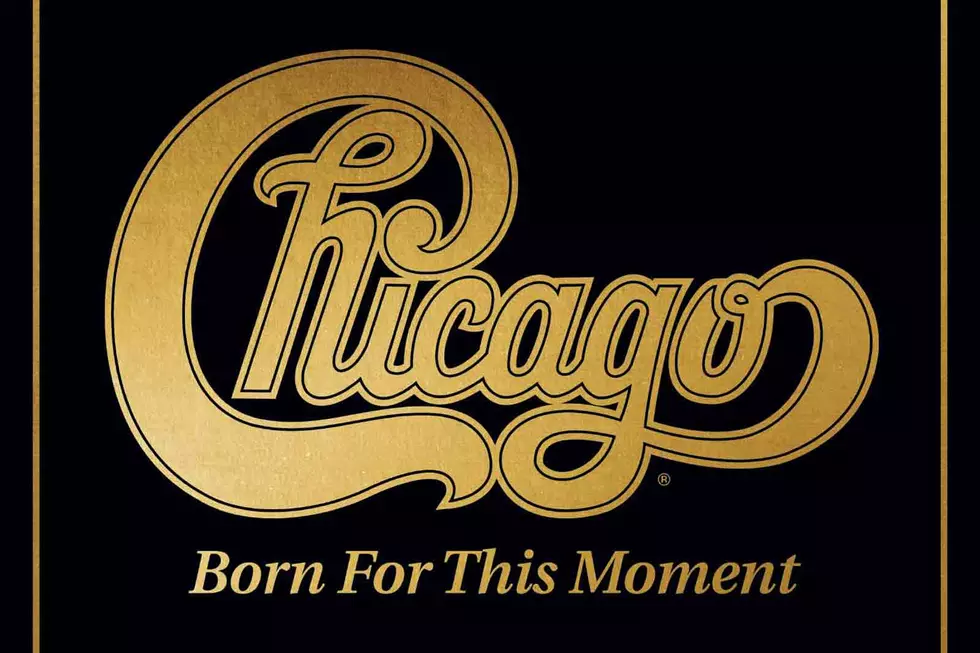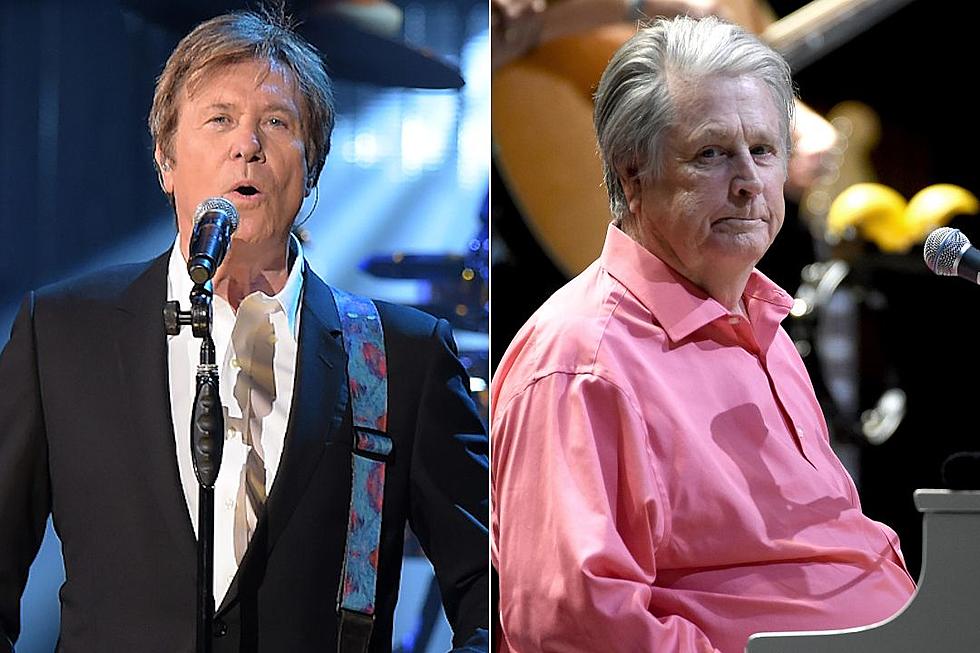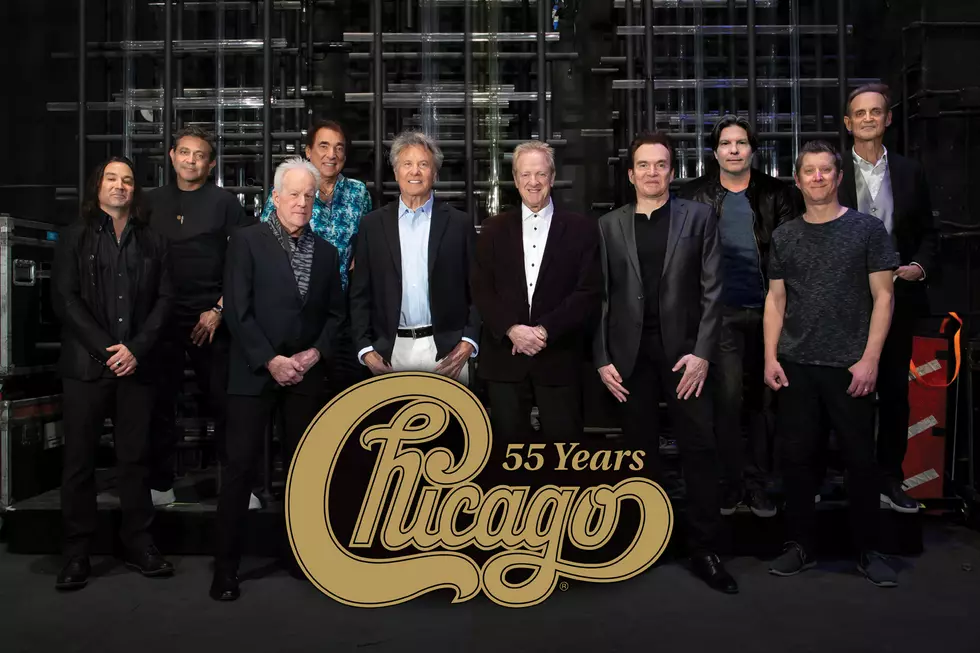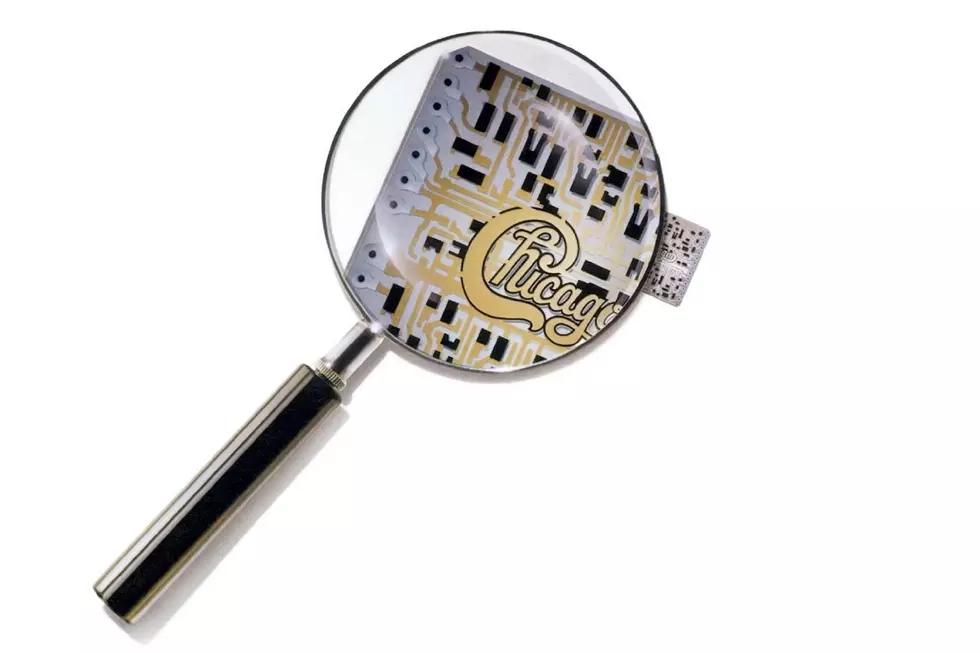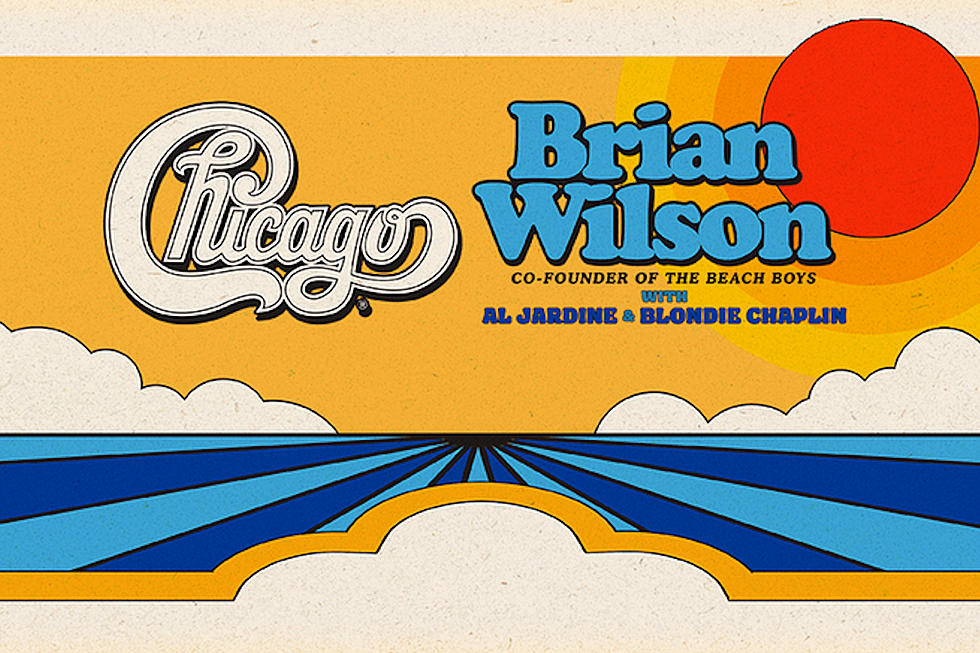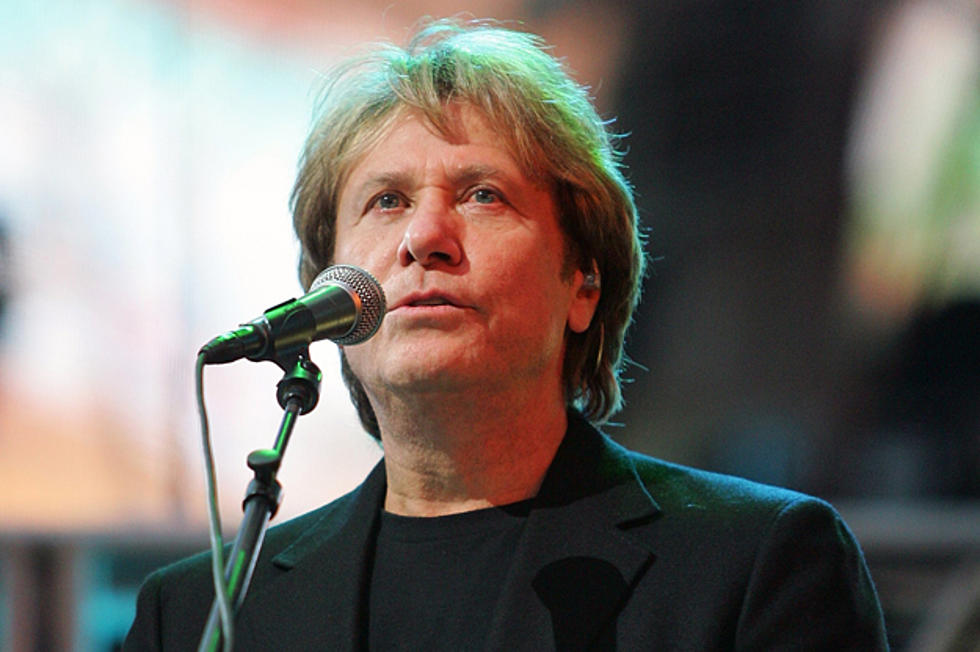
Chicago’s Robert Lamm: The Band’s Original Appeal Was ‘That It Wasn’t All the Same Genre’
Keyboardist and vocalist Robert Lamm has been a key architect and founding member of the “rock and roll band with horns” which would come to be known as Chicago. In the early years of the group, Lamm crafted key tracks that have become beloved bricks in our musical pop culture.
Songs like ‘Saturday in the Park,’ ‘25 Or 6 to 4’ and ‘Does Anybody Really Know What Time It Is’ emerged from Lamm’s pen and 45 years later, those same songs are among a stack of numerous fan favorites which keep the band in demand and on the concert stage.
Conversing with Lamm recently, Ultimate Classic Rock found out a lot about the inner workings that make Chicago tick and we also discussed the new music that the band has been working of late.
You’ve been out on the road this summer with the Doobie Brothers. How’s that going?
It’s really a lot of fun. It’s great to see those guys again and the hang that occurs before the show and after the show and onstage during the show is always a lot of fun. I’ve known Tommy Johnston, Patrick Simmons, John McPhee for a very long time. They’re having a good long solid career. They’re totally professional and there’s no bullsh-t. They’re just totally great.
You guys had the chance to work with the Doobies back in the day. What do you remember about the band back then?
I have a slight glimmer that we toured together and did outdoor venues on what was then a kind of revolutionary stage production called Mobius, which was basically a big circular stage that turned so that both bands could have their complete setup [ready] and all the stagehands had to do was just turn the stage 180 degrees and then you had another band all set up and ready to go.
We did a summer of those gigs and quite honestly, I don’t remember very much. I mean, it was the ‘70s. I don’t remember anything from the ‘70s, man.
With Chicago marking 45 years, it’s exciting to hear that the band is working on new music. How far along are you into the process?
Well, there’s a bunch of songs written. We’ve tracked a few of them. We’re essentially trying to record with 96-bit technology and all of the latest gear that we’re traveling with. When there’s a couple of days off, we can set the stuff up in a conference room in a hotel and not make too much noise. We have a coordinating producer who is an engineer, who basically takes the tracks and makes sense of them and we’re working with Pro-Tools [on all of this].
I think it’s probably going to be another six months. There’s a lot of music. We’re not limiting ourselves by saying that we’re only going to do 10 or 12 songs. Because really, CDs are not really the format of choice anymore, so there’s no reason why we need to stop with just a handful of songs. So our intent is to just record as many songs as are there and listen down and see what makes the strongest statement. [We’ll] probably just issue downloadable albums at first and then later maybe, physical CDs.
As someone who has been used to working in a controlled studio environment for so long where everything is dialed in, has this been a different process for you, working in a situation that’s a bit more spontaneous, environment wise?
Well, for a while now, I’d say for the last few solo projects, I at least do my writing at home or on a laptop while we’re traveling. But I always get into a studio at some point with an engineer who actually knows what he’s doing, to get the finished product done that way.
With the Chicago album, we’re still talking about what different songs might need [as far as] different approaches. So some songs may need us all to set up in a room somewhere and play. But like [for instance], I found great horn samples, so when I write for Chicago, I always sketch the horns in. I have done that from the beginning, but now I have really good sounding horn samples that when I play the parts that I’ve composed for the guys, they really get a picture of what it might be. So in that way, things have changed.
I’ve stayed up with the various recording technologies for a laptop or at-home studio, just because it facilitates my songwriting demos better.
You are someone who has stayed in touch musically through the years, something which is reflected in some of the projects that you take on, both with Chicago and your own solo work. What kind of stuff would you say is informing the current songwriting that you’re doing personally for this Chicago material?
Music is streaming from every corner of the world and there’s a lot of great stuff. Lately in the last few years, I’ve been listening a lot to what’s called new jazz or electronica, although some of that stuff is generated by people [that] call themselves DJs [and] they’re guys who are much deeper than just DJs, so sonically, I’m listening to that stuff.
But in terms of my songs, my harmonic grid and my lyrics, those are really just still coming from things that have been rattling around in my head for a while. I’ve always kept a file of lyric snippets and pieces of things, really going back to the beginning. It’s the same with musical ideas. I’ll just play and if I hit something good, I’ll jot it down and throw it in a file and keep it for later. So essentially, I listen a lot to Brazilian music and jazz, pre-fusion jazz and electronica. But sonically, I’m all over the map. There’s still great stuff being made. Even my own stuff is being sampled in the hip/hop rap world. For me it’s all about sound and the beats in that genre.
As a band, where are you guys looking to take this new Chicago music, based on what you’ve done in the past 10 years?
Well, the talking that we’ve been doing about this, I’ve been just saying to the guys and I’ve said it in interviews as well. I think that the original appeal of Chicago, especially the first half-dozen albums, is that it wasn’t all the same genre, because of the different writers and each of us having different influences. So you weren’t listening to two sides of just blues, you were listening to a lot of different things. I think that now that we have the freedom, that we don’t have to do an album full of power ballads - we certainly could do a power ballad if we wanted to - but now we can do anything that we want to. So I think we should be who we are and have the music evolve from the songwriters as in the past and assuming that all of the songwriters have evolved somewhat, musically.
Now the songwriters basically are [Chicago bassist/vocalist] Jason Scheff, [guitarist] Keith Howland, myself and [keyboardist] Lou Pardini and to some degree, [Chicago trumpet player] Lee Loughnane and [trombone player] Jimmy Pankow, so we have a bunch of different writers. I’m just always trying to get Jimmy and Lee to listen to newer things so that when they write their songs, it’s not unfresh, if you know what I mean. But the rest of the guys, their ears are wide open and they listen to everything that is happening, so I have no worries about the freshness of those guys. I’m basically talking about the rhythm section guys. So it’s all coming from there.
When we talked to Lee back in March, he indicated that everybody in the band was writing again. Are you also collaborating together in the actual writing stages of the songs? Where does that come in?
The collaboration usually is between two or three guys. I am not a guy who is in favor, generally, of having the whole band setup to say “okay, let’s write a song together.” To me, that’s not going to happen. I think a song needs to have at least a kernel of an intent and an idea and that must come from one person at least. So having said that, I’ve got a song with Jason, I’ve got a song with Keith and with [Chicago drummer] Tris [Imboden]. I’ve got a song with Lee and I’ve got a really great song with Lou Pardini. My regular songwriting partners outside of Chicago are Gerry Beckley from America and Hank Linderman, who has produced and co-written some of my solo albums.
There’s no record company involved at this point. In the recent past, Chicago fans have wanted to see more of your songwriting on the albums. It certainly sounds like you’ve been writing a lot, based on the collaborations we were just talking about and perhaps there might be more of your songwriting in the mix this time around.
Well I definitely have that freedom. Usually when there’s a producer involved, like with ‘Chicago XXX,’ Jay DeMarcus from Rascal Flatts produced that project. We did do some writing in Nashville - we did some writing with Jay and a couple of other Nashville writers and Jason. But generally when a producer is involved, he’s either wanting to get in on the songwriting process and direct it so that it’s something radio friendly and is something that’s perhaps an obvious attempt at a hit. That’s not where I live. I live in the more eclectic area ... or just an unexpected area.
With this project, as you say, we’re doing things backwards. We are the record company. Our website’s pretty powerful. We always have the option to just self-release and do the Amazon/CD Baby thing, which is what I’ve been doing [with solo albums]. But we also have very good relations with a couple of different major record companies. We laughingly call them “major record companies” because they have lots of old catalog, but not necessarily because they’re doing a great job as a record company now.
So if we presented an album to Warner Brothers, we could bring it to Warner Brothers, we could bring it to Capitol or we could bring it to Sony and say “would you like to have this one-off album to do with as you will.” We do have that flexibility, which is kind of nice.
Jackson Browne once said unapologetically about some of his more outspoken material that “some of these songs were written to be sung during some of the darkest times.” You emerged as a songwriter at a time when the protests weren’t just happening on the streets, they were also being documented in the lyrics of the music that was being heard. With the stuff that you were writing, like ‘It Better End Soon’ and some of that kind of material, did you experience any sort of unexpected blowback from some of the stuff that you were writing?
No. You know, I think that there were some, I think that some of the guys in the band were uncomfortable with being asked about it in interviews, both here and abroad. My first experiences then with international music journalists were that they were just checking to make sure that you weren’t full of sh-t, about what you were feeling. They were sort of fact checking, if you will. But no, blowback in terms of hurting our career, I don’t think so.
I wrote a song for this new album called ‘Naked In The Garden of Allah,’ which is very edgy commentary about this past 10 years we’ve spent in the Middle East, screwing everything up. So I may get some blowback from that one, I don’t know. [Laughs] But historically, no, not too much.
You’ve remained very active as a solo singer/songwriter outside of Chicago and one track from your latest solo album, ‘Out of the Blue,’ brings together the spirits of Carl Wilson [of the Beach Boys] and Terry Kath as inspirational material. Starting with Carl, you had the opportunity to work with him both inside and outside of Chicago. In addition to that unbelievable voice, he seems like someone who would bring positive energy to any project.
Oh yeah. Carl was a very sweet guy and very positive. He was the kind of guy that when we were recording the Beckley, Lamm, Wilson album, he’d always be a little bit late, but he’d always call up and say “can I bring you guys some cappuccinos - I’m stopping at Starbucks now - I’m on the way!” He was an excellent musician with beautiful ears and great taste and very exacting from all of those years in the studio with Brian [Wilson]. So yeah, it was a really great experience.
What do you think you really picked up from working in the studio with him and that shared knowledge that he had gained working in the studio with Brian?
He was very purposeful. Once we were in the studio and at work, he didn’t fool around a lot, which was good. He didn’t waste any time. But more than that, was his vocal technique and phrasing, which we all loved and we all wish we could emulate. I did learn a few little breathing things from him. I still have a vocal warm up tape with him singing scales, which are out of my reach, by the way, that I use occasionally to warm up with.
The other side of the inspiration for that song was [late guitarist] Terry Kath, who had an enormous impact on Chicago. What are your thoughts, looking back at those times now?
Well, the whole experience and methodology, we were very young and very green and inexperienced, so a lot of it came from sheer intuition and ad libbing the whole process. Because we didn’t really know anything except we knew that we wanted to make music and play together. I do regret not having had Terry along on this whole ride. I would just love to see how he would have evolved. He was always tinkering with the apparatus in an experimental way. Whether it was a guitar or a way to strum the guitar or a way to make the amplifier do something it wasn’t supposed to do. Or just a reel to reel tape deck, playing with that thing. So it would have been interesting to see how he would have interacted with the technology. He’d have a lot of fun, I’m sure.
The band’s work is the subject of a recent ebook called ‘33 Days in the Hole,’ which was written by a heavy metal fan who spent 33 days going through the entire Chicago catalog, album by album.
[Laughs] I’ve gotta see that.
What advice would you have for someone who might be attempting a similar feat?
Well, I would say that it helps to be open. I would say listen on a good set of headphones or at least a decent system. Don’t listen on your laptop speakers. You’ll miss a lot of the magic. I personally do not partake in drugs, nor have I since the ‘70s, but I suppose a little pot for the early albums might not hurt!
More From Ultimate Classic Rock


